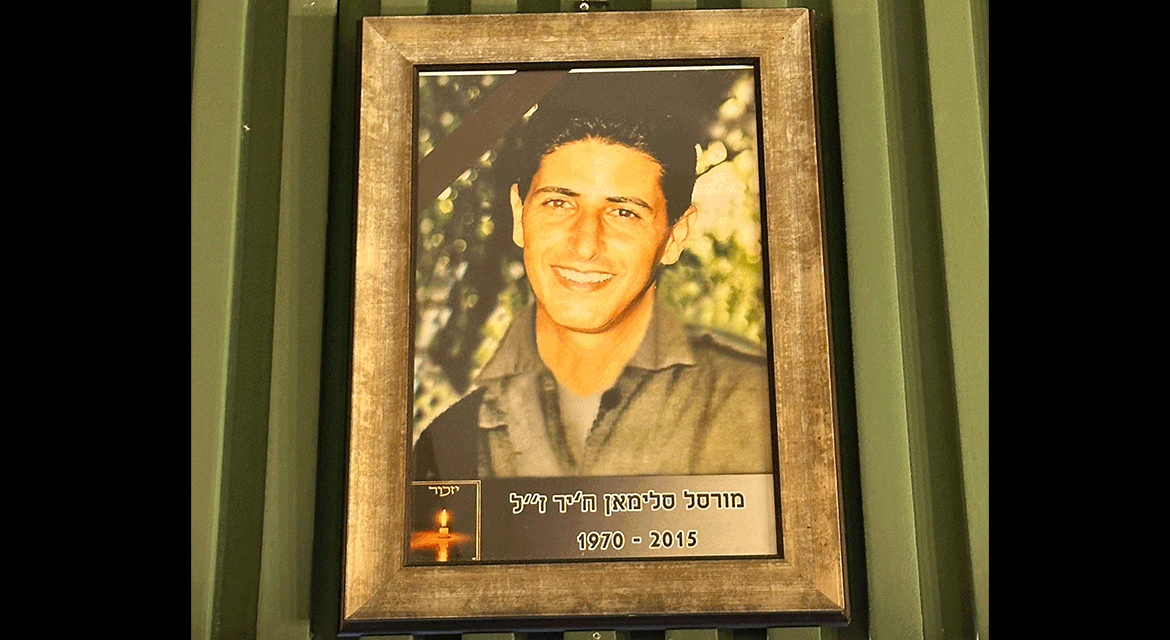This Sunday evening marks the beginning of Yom HaZikaron — Israel's Memorial Day. With the trauma of October 7 still very raw, continuing IDF combat losses, and hostages still in Gaza, this day — always steeped in grief — will be particularly difficult.
On Yom HaZikaron last year, I joined my son, who serves in the Israeli army, and my daughter to stand guard at a military cemetery in Tel Aviv. Each year, active-duty soldiers are assigned to a specific gravesite of a fallen soldier, a poignant tradition honoring those who made the ultimate sacrifice for their country.
I’ll never forget how the normally tranquil cemetery grounds were packed that day with tens of thousands of people. Families, often multiple generations, stood pressed literally shoulder-to-shoulder up against other families. One remembered a father who fell in 1967, another a grandfather killed in 1948. We were there honoring a young woman soldier who had died in 1998 at age 19.
As the 11:00 am memorial siren sounded, everyone stood totally silent as one — a sea of people whose lives were bound together by unbearable tragedy in defense of a precious nation.
There didn’t seem to be room for even one more.
And yet, since Yom HaZikaron last year, 1,598 Israelis — 764 soldiers and 834 civilians — were killed in combat or by terror. The sea of people will be more swollen with grief this year. And so many others are caught in a terrible limbo, unable to bury their dead because the remains are being held by Hamas in Gaza, or with no idea if their loved ones are alive or not.
What is always hard is exponentially harder now. But Israel also offers a roadmap for perseverance.
In establishing its national holidays, Israel made the profound choice of having Yom HaZikaron immediately precede Yom Ha’Atzmaut, Israel’s Independence Day — grief giving way to joy. Two holidays, flip sides of the same narrative, one right after the other.
This year, the joy of Yom Ha’Atzmaut will surely be muted. But Israelis across the country will still come together to celebrate the State of Israel at 76.
Typically, to mark the closure of Yom HaZikaron and the transition to Yom Ha’Atzmaut, a torch-lighting ceremony is held on Mount Herzl, where people of inspiring achievement are given the honor of lighting a torch.
This year, the torches will instead be lit inside the Gaza border communities attacked on October 7, as well as on IDF bases targeted in the Hamas attack that suffered heavy losses. Torch lighters were selected for acts of heroism, compassion, and leadership related to October 7 and its aftermath.
A few weeks ago, I had the privilege of meeting one of the torch lighters, Basma Hino, a member of the Druze community. I heard her story when I spent the day in northern Israel, and it is precisely the kind of inspiration we need in these challenging times.
Basma’s husband, like most of the Druze population living in Israel, proudly served in the IDF. When she was four months pregnant with their first child, her husband sustained a brain injury while in the army. He was in a coma for 13 years, until he passed away. Defying Druze communal norms, Basma decided she didn’t want widowhood to define her. So she opened a restaurant called Noor — named after their son — serving Druze delicacies, a business that grew and grew.

